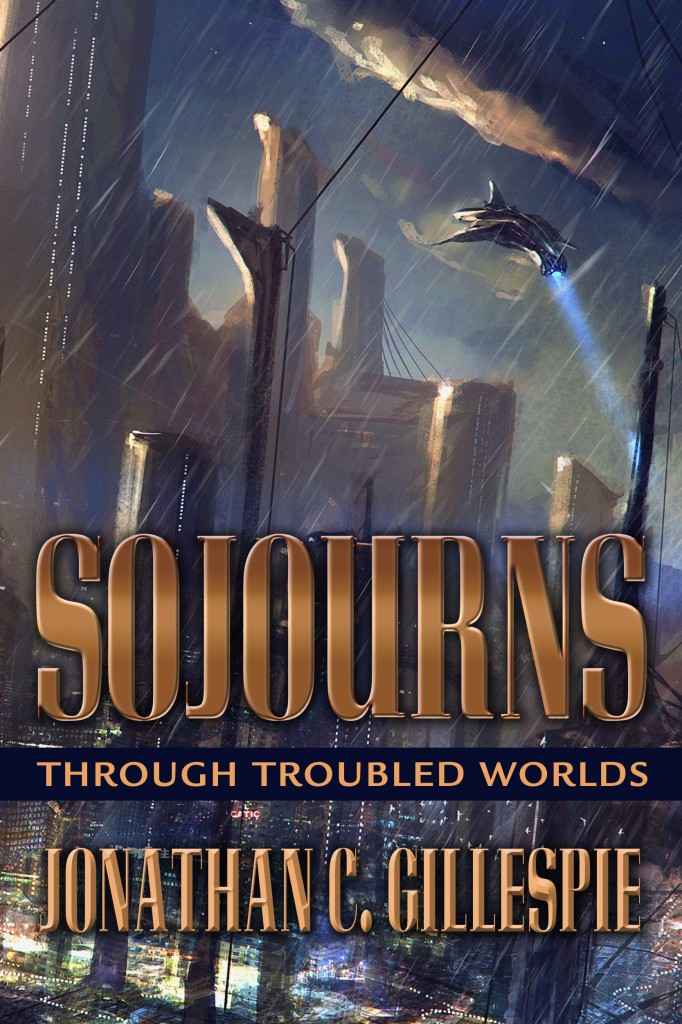Fiction is Never Finished
August 15, 2012 in General Topics
 Chief among many classical philosophies is the idea that whatever object a person creates can be nothing more than something approaching what is desired. For example, a chair is not a chair — it’s the idea of a chair. The craftsman gets as far as possible, but is forever incapable of achieving the exact end-result he chases.
Chief among many classical philosophies is the idea that whatever object a person creates can be nothing more than something approaching what is desired. For example, a chair is not a chair — it’s the idea of a chair. The craftsman gets as far as possible, but is forever incapable of achieving the exact end-result he chases.
Fiction-writing, please report front-and-center.
I received the first proof of The Tyrant Strategy: Revenant Man a few days ago. It is stunning. It looks cinematic, which is what I wanted. It needed a minor layout issue corrected, which has been done, so I should have the revised proof in-hand in a few days, at which point only a final re-read will be needed. (CreateSpace advocates three re-reads, focusing on a different aspect of the book’s production each time, making me wonder who would ever allow a book to reach the proof phase with so many potential issues).
Revenant Man, the first part of The Tyrant Strategy, was first drafted some three years ago. I’m not plugging my book here; I’m honestly going to make a point in a moment, but some backdrop is necessary to support it.
Anyway, in the years since the first draft was written (and filed away for a while), the book has gone through the following:
- An initial re-write, addressing high-level details of plot, character development, theme, and consistency.
- A second re-write, addressing fine details: prose structure, grammar, technology, cultural artifacts, battle sequences, and other nits to pick.
- A commented first-read from a professional writer.
- A commented first-read from my darling wife.
- A third re-write, focusing on areas of agreement with the first readers, as well as more items I noticed myself.
- A full pass by an editor.
- A full pass by my book prepper, who did final copy-editing.
- A pass by your humble author, with final, minor spot changes made.
- A last re-read of the manuscript. This was the “sanity check” step.
Consider, then, that when I cracked open the proof and thumbed through it, I still found things I wanted to change. I was completely aware that the average reader would not care about what I noticed, but, but…this is my book, dang it, and I wanted it to be perfect.
Can’t it be perfect?
There, friends, is the ugly trap at the end of any creative endeavor. Your work-in-progress will always feel like a work-in-progress, and nothing you or anyone else does will ever eliminate that feeling. For those of you writing your first novel (I have three under my belt, though this is the first one I’m publishing) — I will warn you that you can, and will meet the point of diminished returns. You will arrive at the juncture where you can choose to publish, or spend the rest of your life working on an unpublished manuscript.
You’ll be very aware that the book you hold is only the idea of the book in your head.
This is why I tell folks all the time: Fiction is never finished. It simply reaches a state of rest.
Writers do not endure this phenomenon alone. Bono of U2 struggles with perfectionism. Amanda Hocking has lamented before that her books never feel done (forgive me, I can’t find the exact blog post). It carries over to enterprise, too: Steve Jobs, a notorious perfectionist, had NeXT factory equipment repainted multiple times, chasing just the right color scheme.
Professionals recognize when their work is as complete as it will ever be, and move on. And that’s how books are written, and that’s how you had something to sit on while you read this post.
Stay tuned.

Sojourns Through Troubled Worlds: Malevolent, metal-scavenging microdrones (“Paston, Kentucky”). A collector’s car with a mind of its own, off for a drive through a nuclear holocaust (the two-time award-nominated “Best in Class”). These and other tales await in Jonathan C. Gillespie’s debut short fiction collection, which brings together five killer tales from the author’s publishing history.
Just $1.59, for a limited time. For Kindle, Kobo, and Nook.

Recent Discussion